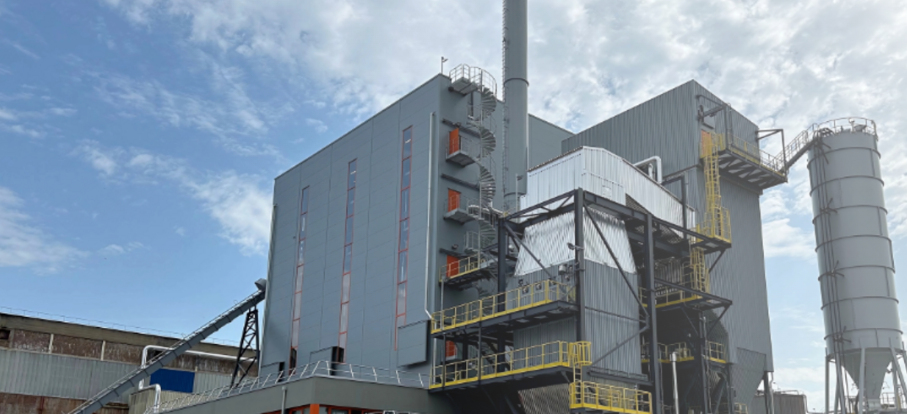
DS Smith's new biomass boiler has been activated at Rouen paper mill, marking a transformative €90M investment in low-carbon energy infrastructure.
Cutting Emissions With Circular Energy Solutions
The cutting-edge project replaces the mill’s coal-fired boiler with a renewable energy solution powered by biomass waste, driving significant reductions in greenhouse gas (GHG) emissions and accelerating DS Smith’s journey to Net Zero.
The new boiler, which will process approximately 94,000 tons of biofuel annually, will reduce carbon emissions by 99,000 tonn per year and eliminate the mill’s reliance on fossil fuels. In real terms, the volume of carbon emissions removed is roughly equivalent to the annual energy use of around 13,000 French households, or taking around 40,000 cars off the road for a year.
Using Local Waste Wood to Power the Mill
The approach taken at Rouen is a circular one. The biomass used will be sourced from local industrial and municipal waste wood including construction and furniture waste, with 70% sourced from Paris and 30% from Normandy, as well as by-products from the company's own paper production processes. This circular approach will divert up to 70,000 tons of waste wood from landfill each year.
"This project illustrates the integration of circular economy principles into the energy transition. By diverting wood waste from landfills and transforming it into a valuable energy resource, DS Smith is contributing to France’s decarbonization goals," said Emilie Machefaux,
Head of the Renewable Heat Department ADEME.
Aligning with France’s Green Industry Bill and the European Green Deal Industrial Plan, the groundbreaking project was granted approval by the Regional Biomass Scheme in 2022 and is supported by local authorities including a €15M subsidy from the French Agency for Ecological Transition (ADEME).
Engie Solutions will oversee the boiler’s operation, with future plans to incorporate a steam turbine capable of generating 10 MW of electricity. This collaboration reflects the shared commitment of DS Smith, local authorities, and industrial partners to France’s green energy transition.
"We are proud to work with DS Smith on this biomass project, showing how renewable energy can decarbonize industry. By using waste as fuel, it proves biomass can scale locally. Together, we’re driving greener, more efficient manufacturing in France," said Frank Lacroix, ENGIE Executive Vice President in charge of Local Energy Infrastructures.
The Rouen project underscores the advantages of France’s established wood recycling and biomass infrastructure, which has been in place since 2011. France is unique in this space in having the long-term strategic framework needed to attract comparable investments in renewable energy.
The Rouen biomass boiler exemplifies a transitional energy solution that complements longer-term efforts toward decarbonization, such as hydrogen and electrification. By leveraging waste biomass as fuel, DS Smith ensures resource efficiency while contributing to the circular economy.
"This investment supports our sustainability goals and shows how public-private partnerships can drive a low-carbon economy. It gives manufacturers confidence to act, showing how strong policy and infrastructure can enable decarbonisation across Europe," Pierre Jegu
Paper Cluster Director, DS Smith.

